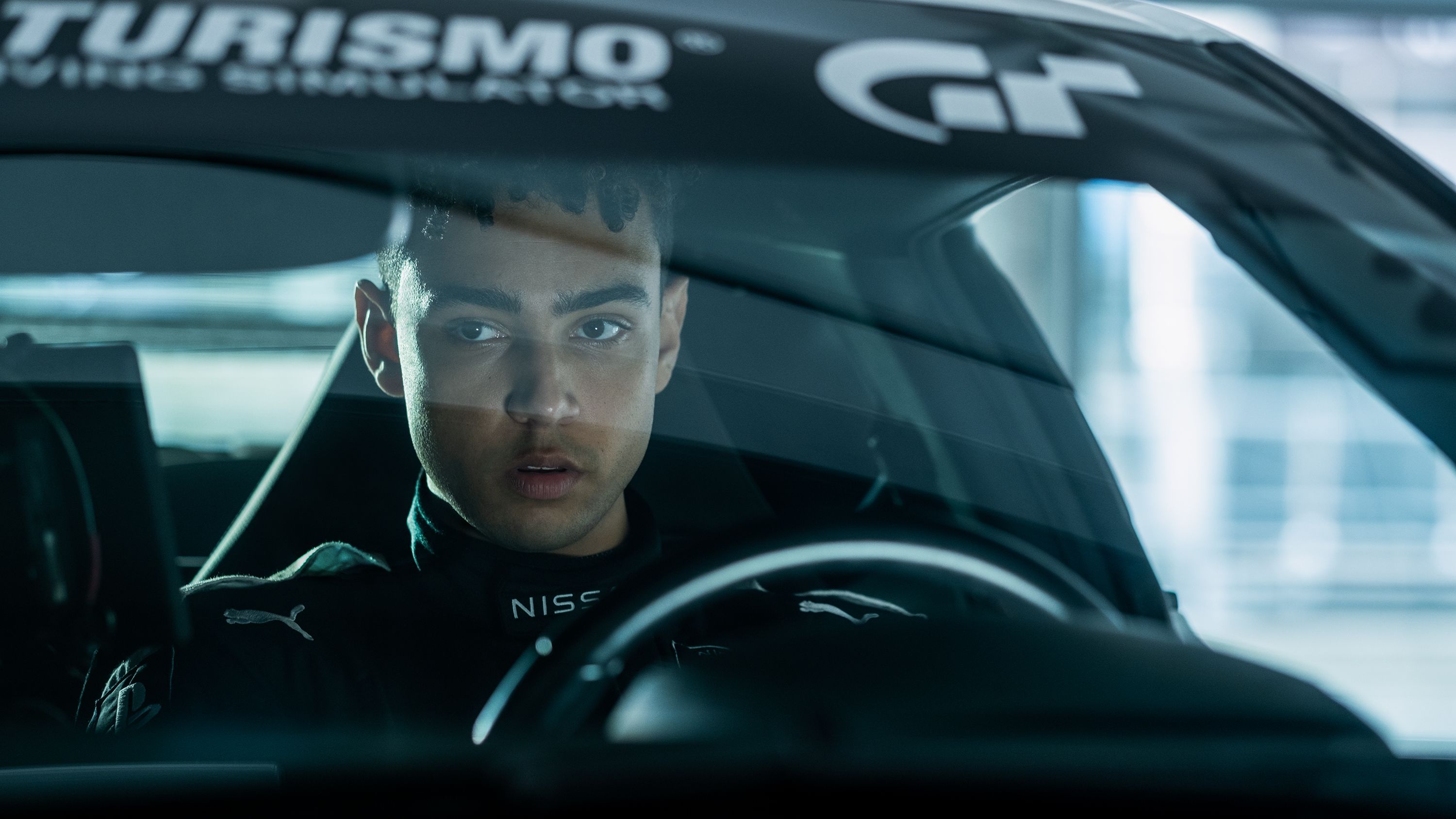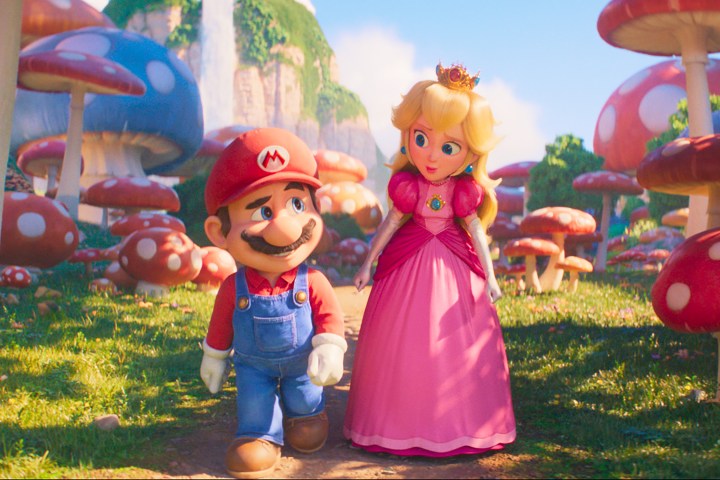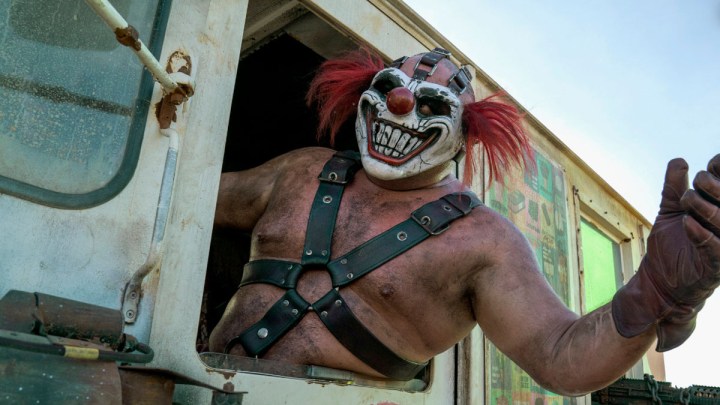
Video games adaptations are having a moment. You might say it’s their biggest moment. For years, movies and TV shows based on games were a punch line, poorly received by fans and critics alike. There have been plenty of exceptions, of course — the cult followings of the Resident Evil movies and the Castlevania cartoon, the spikes of frankly baffling enthusiasm for Detective Pikachu and Sonic the Hedgehog. But the failures have always outnumbered the successes. At least until this year.
By leaps and bounds, The Super Mario Bros. Movie has cleared all previous box-office benchmarks for a film based on a game; were it not for the runaway success of Barbie, it would be the biggest hit of the year. While the plucky plumber scaled to the commercial peak of the genre, a much grimmer smash — HBO’s celebrated take on The Last of Us — achieved a new apotheosis of critical respect, earning the best reviews ever bestowed upon a video game adaptation. Reception to the similarly postapocalyptic Twisted Metal has been more mixed, but the show has its fans. And now comes Gran Turismo, which already feels like a victory lap: Whatever it ends up clearing at the box office, its true story of a gamer-turned-professional racer is a perfect fit for the year when video game adaptations made (and got) good.
But how good? Hollywood may have finally figured out how to turn something people love to play into something they’ll gratefully watch, but that doesn’t mean anyone’s cracked the code to getting truly satisfying cinema or TV out of games. The essential appeal of a video game almost never makes the leap from the console to the theater, network, or streaming platform — and that goes even for this year’s winning crop.

Part of the reason games don’t lend themselves naturally to adaptation is that plenty of them are not narratively driven in the traditional sense. The Mario games, going back to the 8-bit days, have always been beautifully, precisely designed. As much as any cutscene-heavy AAA blockbuster with literary or cinematic pretensions, they make the case that video games can be both endlessly fun and works of art. But you don’t play them for their stories! A faithful adaptation of Mario would be essentially plotless, just a bunch of action sequences set against a rotating series of bright, colorful environments.
In building out a coherent story for a character and a fantasy world that’s always kept things save-the-princess simple, the creative team at Illumination squashed Mario into a box. The Super Mario Bros. Movie is like any nattering, celebrity-voiced animated film, just with Mario skins slapped on top. It has essentially the same problem as that dreadful Sonic movie: It snatches its beloved character away from the fun of the games and drops him into a generic, cookie-cutter adventure. While certain set pieces recall familiar gameplay elements — there’s a Mario Kart sequence and a Super Smash Bros. sequence — they’re linked by a half-assed narrative with only the barest cosmetic connection to the actual experience of playing Mario.

Of course, not all video games are as plot-resistant as Nintendo or Sega’s flagship franchises. Naughty Dog’s stealth action/horror masterpiece The Last of Us is so narratively driven that a movie or TV version was all but inevitable; Joel and Ellie’s episodic journey across a ruined, ravaged America caught comparisons to prestige television long before HBO optioned the rights. It’s no surprise that this January’s acclaimed nine-episode adaptation sticks close to the template of the game, following most of its plot beats to the letter.
Still, the best moments of the show deviate from the game, and that’s not a coincidence. The widely beloved third episode, a tender doomsday love story told through flashbacks, is not just unique to the series, but also something the game could never really have done. In general, creator Neil Druckmann considered ways he could lean into the strengths of a new medium; on television, The Last of Us scales back the action and beefs up the quietly meditative elements. There are more conversations and fewer feverish encounters with shrieking ghouls and bloodthirsty survivors.
But part of the genius of The Last of Us in its original form is that it threaded its serious dramatic elements through its action. All the morose fallen-world bonding is less compelling when that’s essentially all we get. What’s more, removing most of the intense stealth combat from the equation throws into sharp relief the familiarity of the material. The reality is that The Last of Us borrowed freely from other horror, sci-fi, and action fiction; it was the gameplay that made those elements feel new. Without it, you’re watching something you’ve watched before — albeit built around a compelling relationship and a truly devastating ending.

The 10-episode first season of Twisted Metal has its garish pleasures (many of them courtesy of a strong, game cast), but also a similar issue: A cartoonish spin on Mad Max is less fun to watch than it was to play. Gran Turismo, meanwhile, escapes side-by-side comparisons by coming at the adaptation process through a sideways angle — by tackling a true story about the game rather than just trying to move the game itself to the big screen. Still, while Neil Blomkamp’s cornball adherence to sports-movie cliché might not immediately have audiences thinking about the racing-simulator hits they could be logging time with instead, all the relentless advertising of those games he sticks into the margins of the plot could.
Maybe that’s the key to why even the best video game adaptations feel like they’re missing something: They lock the audience on the outside of what were fundamentally interactive experiences. It wouldn’t quite be fair to say that this year’s PlayStation- or Nintendo-based hits are like watching someone else play a video game. But they do diminish the joy or power of what they’re adapting. Mario isn’t about the insecurity of a Brooklyn plumber with an unsupportive family. It’s about pulling off a perfectly timed leap from a turtle’s shell to a moving platform to snatch a glowing star. And the unforgettable ending of The Last of Us is more, well, forgettable when it’s not you guiding Joel’s hand to that knife and pushing it in.
It’s likely that 2023go down as the most important year for video game adaptations, and maybe a turning point for how Hollywood approaches the art of turning a game into a movie or a series. But it’s going to take more than the spit-shined kiddie-flick competence of The Super Mario Bros. Movie or the handsome Cliff’s Notes fidelity of The Last of Us to push this genre forward. Until someone does something bold with the joystick, expect to keep hearing variations on the book lover’s lament: The game is better.
Gran Turismo is now playing in theaters everywhere. The Super Mario Bros. Movie and Twisted Metal are now streaming on Peacock. The Last of Us is now streaming on Max.
Editors' Recommendations
- Are movie franchises dead, or are we just seeing the start of new ones?
- 5 ways video game adaptations can learn from The Last of Us



